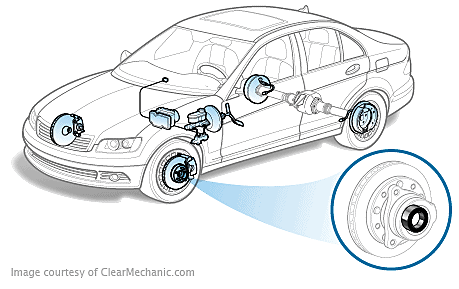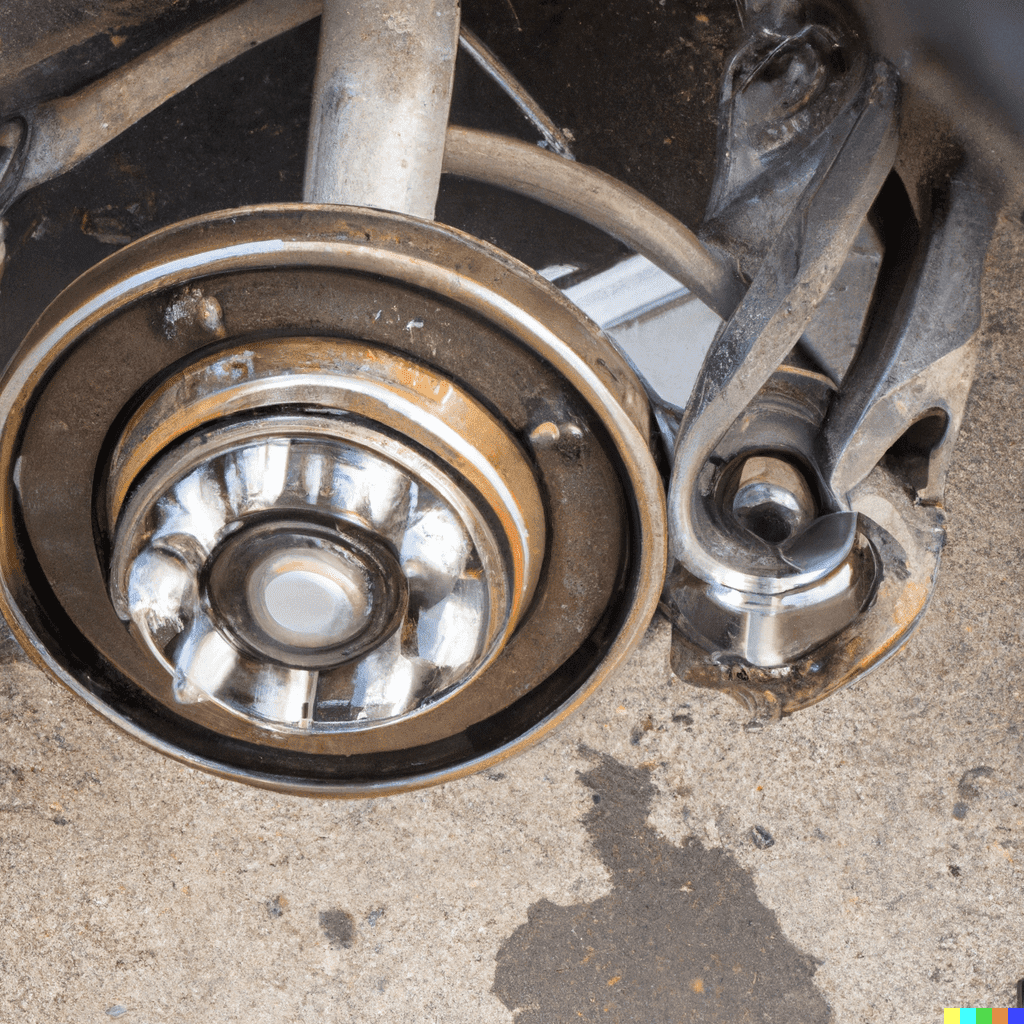So, what is a wheel bearing?
In the most basic terms, a wheel bearing is a crucial component of your vehicle’s suspension system. It’s a small metal ball that helps your wheels spin smoothly as you drive. Without properly functioning wheel bearings, your ride will be anything but smooth.

How Much Does It Cost To Replace A Wheel Bearing In Canada?
Wheel bearings are a critical part of keeping your vehicle running smoothly, but they can wear out over time, causing various issues like vibrations, noises, and other problems. If you’re a Canadian driver wondering about the cost of replacing your wheel bearings, the answer varies. The cost depends on factors such as the type of bearings, your car’s make and model, and the local labor costs.
Rear Wheel Bearings
On average, the total cost can range from $350 to $650. Parts needed to replace rear wheel bearings can cost between $150 and $300. Labor costs usually range between $200 and $350.
Front Wheel Bearings
Replacing front wheel bearings is typically more expensive and the total cost can range from $385 to $700. The average labor costs range from $225 to $350, and the average parts cost is between $160 and $350.
Front and Rear Wheel Bearings
If you need to replace all the wheel bearings on your vehicle, expect to spend anywhere from $800 to $1400. Unless you have a warranty plan that covers this cost, it may be more expensive than you anticipate.
Overall, the cost of replacing wheel bearings varies based on different factors. It’s crucial to obtain an accurate estimate from a trusted mechanic before proceeding with the repair. Investing in high-quality wheel bearings and professional installation can save you money over time by reducing the need for frequent repairs.
Other Components That May Need Replacement When Changing Wheel Bearings?
create a sub heading for: When it comes to replacing wheel bearings, there are a few other components that may need to be replaced as well. One of the most common parts that is replaced along with wheel bearings is the hub assembly. The hub assembly is the part of the wheel that holds the wheel bearings and connects to the suspension system. When the wheel bearings fail, it is often recommended to replace the hub assembly as well, as it can be difficult to remove the old bearings from the hub.
In addition to the hub assembly, other parts that may need to be replaced when changing wheel bearings include the dust cap, cotter pin, and axle nut. These components can wear down over time or become damaged during the removal and installation of the wheel bearings. It is important to replace them to ensure the new bearings are installed correctly and securely.
It is also worth noting that if the wheel bearings have failed due to issues with the suspension or steering system, those components may need to be inspected and repaired as well. In some cases, worn or damaged bearings can cause additional wear and tear on other parts of the vehicle, so it is important to have a mechanic inspect the entire system to ensure all necessary repairs are made.
How Often Do you Need To Replace Your Wheel Bearing?
The answer to that question depends on a few factors, including the make and model of your vehicle and how you drive. In general, however, most vehicles will need new wheel bearings every 130,000 km to 160,000 km
It’s important to note that if you start to hear strange noises coming from your wheels, or if your vehicle starts to vibrate at certain speeds, it may be time to get your wheel bearings checked out. Catching a problem early can save you a lot of money and hassle down the road.

Symptoms of Bad Wheel Bearings
• Grinding or growling noise coming from the wheel area
• Vibration or shaking while driving, especially at high speeds
• Difficulty turning the vehicle
• Uneven tire wear
Is It Safe to Drive with Bad Wheel Bearings?
It is not safe to drive with bad wheel bearings. If a bearing fails while you are driving, it can cause the wheel to come off of the vehicle, leading to a serious accident. It’s important to have any issues with your wheel bearings addressed as soon as possible.
How to Make Your Wheel Bearings Last Longer
• Follow the recommended maintenance schedule for your vehicle and have your wheel bearings inspected regularly
• Avoid overloading your vehicle, as this can put extra strain on the bearings
• Keep your tires properly inflated, as driving on underinflated tires can cause increased wear on the bearings
• Avoid driving through deep water or in extreme weather conditions, as this can cause damage to the bearings
• If you notice any strange noises or vibrations coming from your wheels, have them checked out as soon as possible
• If you frequently drive on rough roads or in mountainous terrain, consider upgrading to higher quality wheel bearings to increase their lifespan.
Conclusion
The cost of replacing wheel bearings in Canada can vary depending on different factors such as the type of bearings, make and model of the car, and local labor costs. However, it’s important to prioritize the safety of your vehicle by having any issues with your wheel bearings addressed promptly. Regular inspections, following the recommended maintenance schedule, and upgrading to high-quality bearings can help prolong the lifespan of your vehicle’s bearings. If you’re in need of a reliable mechanic to inspect or replace your wheel bearings, consider getting a free quote with Uchanics, who offer mobile wheel bearing replacement conveniently at the comfort of your home.. Don’t wait until it’s too late – ensure the safety and smooth operation of your vehicle by taking care of your wheel bearings today.
